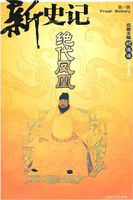And hence it came to pass, that not only by the Customs of Normandy, but also according to the Customs of other Countries, those honorary Fees, or Infeudations, became descendible to the Eldest, and not to all the Males. And hence also it is, that in Kent, where the Custom of all the Males taking by Descent generally prevails, and that pretend a Concession of all their Customs by the Conqueror, to obtain a Submission to his Government, according to that Romantick Story of their Moving Wood: But even in Kent itself, those ancient Tenements or Fees that are held anciently by Knights Service, are descendible to the Eldest Son, as Mr Lambard has observed to my Hands in his Perambulation, Page 533, 553. out of 9 H. 3. Fitz. Prescription 63. 26 H. 8.5. and the Statute of 31 H. 8. cap. 3. And yet even in Kent, if Gavelkind Lands escheat, or come to the Crown by Attainder or Dissolution of Monasteries, and be granted to be held by Knights Service, or Per Baroniam, the Customary Descent is not changed, neither can it be but by Act of Parliament, for it is a Custom fix'd to the Land.
But those honorary infeudations made in ancient Times, especially shortly after the conquest, did silently and suddenly assume the Rule of Descents to the Eldest, and accordingly held it; and so altho' possibly there were no Acts of Parliament of those Elder Times, at least none that are now known of, for altering the ancient Course of Descents from all the Sons to the Eldest, yet the Use of the Neighbouring Country might introduce the same Usage here as to those honorary Possessions.
And because those honorary Infeudations were many, and scattered almost through all the Kingdom, in a little Time they introduced a Parity in the Succession of Lands of other Tenures, as Socages, Valvasories, &c. So that without Question, by little and little, almost generally in all Counties of England (except Kent, who were most tenacious of their old Customs in which they gloried, and some particular Feuds and Places where a contrary Usage prevailed) the generality of Descents or Successions, by little and little, as well of Socage Lands as Knights Service, went to the eldest Son, according to the Declaration of King Edw.
I in the Statute of Wales above mentioned, as will more fully appear by what follows.
In the Time of Hen. I as we find by his 70th Law, it seems that the whole Land did not Descend to the eldest Son, but begun to look a little that Way, viz. Primum Patris Feudum, Primogenitus Filius habeat. And as to Collateral Descents, that Law determines thus: "Si quis sine. Liberis decesserit Pater aut Mater ejus in haereditatem succedat vel Frater vel Soror si Pater & Mater desint, si nec hos, habeat Soror Patris vel Matris, &deinceps in Quintum Geniculum; qui cum propinquiores in parentela sint haereditario jure succedant; & dum Virilis sexus extiterit &haereditas ab inde sit, Foeminea non haereditetur."By this Law it seems to appear;
1. The eldest Son, tho' he had Jus Primogeniturae, the principal Fee of his Father's Land, yet he had not all the Land.
2. That for want of Children, the Father or Mother inherited before the Brother or Sister.
3. That for want of Children, and Father, Mother, Brother, and Sister, the Land descended to the Uncles and Aunts to the fifth Generation.
4. That in Successions Collateral, Proximity of Blood was preferred.
5. That the Male was preferred before the Female, i.e. The Father's Line was preferred before the Mother's, unless the Land descended from the Mother, and then the Mother's Line was preferred.
How this Law was observed in the interval between Hen. I. and Hen. 2. we can give no Account of; but the next Period that we come to is, the Time of Hen. 2. wherein Glanville gives us an Account how the Law stood at that Time: Vide Glanville, Lib. 7.
Wherein, notwithstanding it will appear, that there was some Uncertainty and Unsettledness in the Business of Descents or Hereditary Successions, tho' it was much better polished then formerly, the Rules then of Succession were either in Reference to Goods, or Lands. 1st, As to Goods, one Third Part thereof went to the Wife, another Third Part went to the Children, and the other Third was left to the Disposition of the Testator; but if he had no Wife, then a Moiety went to the Children, and the other Moiety was at the Deceased's Disposal. And the like Rule if he had left a Wife, but no Children. Glanv. lib. 7. cap. 5. & Vide lib. 2. cap. 29.
But as to the Succession of Lands, the Rules are these.
First, If the Lands were Knights Service, they generally went to the eldest Son; and in case of no Sons, then to all the Daughters; and in case of no Children, then to the eldest Brother.
Secondly, If the Lands were Socage, they descended to all the Sons to be divided; Si feurit Soccagium & id antiquitus divisum;only the Chief House was to be allotted to the Purparty of the Eldest, and a Compensation made to the rest in lieu thereof: "Si vero non fuerit antiquitus divisum, tunc Primogenitus secundum quorundam Consuetudinem totam Haereditatem obtinebit, secundum autem quorundam Consuetudinem postnatus Filius Haeres est."Glanville, lib. 7. cap. 3. So that altho' Custom directed the Descent variously, either to the eldest or youngest, or to all the Sons, yet it seems that at this Time, Jus Commune, or Common Right, spoke for the eldest Son to be Heir, no Custom intervening to the contrary.
Thirdly, As the Son or Daughter, so their Children in infinitum, are preferred in the Descent before the Collateral Line or Uncles.
Fourthly, But if a Man had two Sons, and the eldest Son died in the Life-time of his Father, having Issue a Son or Daughter, and then the Father dies. it was then controverted, whether the Sou or Nephew should succeed to the Father, tho' the better Opiuion seems to be for the Nephew, Glanvil. lib. 7. cap. 3.
Fifthly, A Bastard could not inherit, Ibid. cap. 13, or 17.














